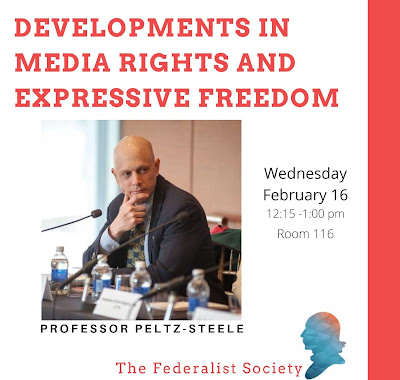At age 77, Yoweri Museveni maintains his grip on power in Uganda and yesterday rebuffed criticism by Human Rights Watch.
In 2016, I presented a work-in-progress research paper on history and human rights in Uganda at a regional law-and-society conference at the University of Cape Town, South Africa. I never published the paper; it's a project that I back-burnered and have yearned to return to. At that time, I was nervous about the presentation, because I had never actually been to Uganda; only read about it. There were academics from Uganda in the audience. I was relieved afterward when they said I got it right; I hoped they weren't just being nice.
The impression left on me by my research was that Uganda was, sadly, kind of a backward place. Museveni had, and has, held the presidency since 1986, not long after the Idi Amin regime collapsed. (If you haven't seen The Last King of Scotland (2006), watch it now.) Museveni is one of those leaders who wins reelection by just too large a margin, and laws have to be changed to allow him to run again. One can't help but lament that Uganda's story is no more than a series of authoritarian regimes exploiting people and resources since the British brought the political entity into existence in the 19th century.
 |
Selfie at a roadside fruit-and-veg stand in Fort Portal, Uganda
CC BY-NC-SA 4.0 RJ Peltz-Steele |
So winging into Entebbe in June, I expected to find in Uganda a bleak economic picture: a dilapidated infrastructure built on empty promises and crushed by poverty—maybe like the development-run-out-of-gas picture I found, literally, in Harare in 2020, just before the pandemic savaged what sanctions had not.
I was surprised, then, not to find that at all. To the contrary, there was ample evidence of economic prosperity in the tile-roofed residential and commercial buildings that filled the terraced hills between Entebbe and Kampala. I found a reasonably well outfitted capital in Kampala. The streets were no worse than the dirt-guttered throughways I had navigated in Nairobi. There were decent restaurants; I found a good gym. Subsequently, traveling in the countryside, sure, I saw plenty of poverty and subsistence living. But the picture was no more bleak than supposedly-more-faithfully democratic Kenya with its nearly triple the GDP.
.jpg) |
Museveni overlooks street traffic in Kabale, in the Western Region of Uganda.
CC BY-NC-SA 4.0 RJ Peltz-Steele
|
Museveni-for-President posters are plastered everywhere, from the city to the villages. It's good to be king. But the gentle face that looks out from the posters harbors grim secrets.
What attracted me to research on Uganda in the first place was having learned of the terrifying plight of the LGBTQ population there. In the 2010s, Massachusetts pastor and one-time gubernatorial candidate Scott Lively traveled to Uganda to warn lawmakers of a homosexual menace—practically the same cabal that waged World War II against the world through the secretly homosexual leadership of the Nazi Party, as Lively had recounted in his 1995 book, The Pink Swastika.
What influence Lively had on the Ugandan Parliament is as unknown as why he had any at all, but the Parliament subsequently enacted the infamous 2014 Anti-Homosexuality Act, which criminalized same-sex relations on pain of life imprisonment, thanks to late amendment, rather than the death penalty, as legislators had first proposed.
The law in Uganda was enjoined by the courts, but it was never the law that was really the problem. The mentality that the law represented justified a regime of brutal abuse and oppression of the gay community, including murder, whether at the hands of public authorities or while authorities stood idle. As a Christian, a Massachusetts scholar, and an Africaphile in comparative law, I was aghast at what Lively seemed to have wrought—though it must be said, for his part, that Lively never countenanced violence.
You can learn more about the matter from many sources, including what is probably my all-time number-one-favorite documentary film, Call Me Kuchu (2012); human rights activist Pepe Julian Onziema's part 1 and part 2 appearances on Last Week Tonight with John Oliver (2014); and documents in the unsuccessful U.S. federal lawsuit, Sexual Minorities Uganda (SMUG) v. Lively (1st Cir. 2018) (at the Center for Constitutional Rights, though don't misread CCR's rosy spin to misunderstand: Lively prevailed, just not as much as he wanted to).
This particular background certainly did nothing to raise my expectations for Uganda. Happily, though, I found in Uganda nothing like the senselessness I had read about. For the most part, I met happy, hard-working people. I found observance of faith, Catholic, Protestant, and Muslim, no different from other parts of East Africa. I saw nothing like a dogmatic mob stirred to feverish rage, like I had seen in a video of a Lively public appearance.
The fault is mine. I gave into stereotypes, because it was easy to generalize "backward" from Uganda's democratic deficit. But that deficit is the aftermath of colonialism, corruption, and the related ills that afflict so much of Africa, not an ailment of ordinary people. I failed to consider that generalizing from the crowd of believers in Lively's audience is about as fair to Uganda as assuming that the January 6 rioters, pictured relentlessly on TV, are representative of all Americans.
.jpg) |
Museveni's and other political posters adorn a chai shop in a rural village of the Kabale District.
CC BY-NC-SA 4.0 RJ Peltz-Steele |
Yesterday,
according to the Uganda Monitor, at a Makerere University law school program on human rights accountability, Human Rights Watch CEO Kenneth Roth confronted Museveni with a report (
this one, I assume) detailing unlawful detention and horrific physical abuses of civilians by Ugandan security forces. Roth described the president's dismissive response: "The President said Africa has lived through colonialism, it has lived
through slavery, and it has lived through various exploitations by
Europeans. He overthrew Idi Amin. Don't talk to him about human rights."
The HRW report doesn't even mention the LGBTQ community. It seems that official disregard for human rights is not so narrow a problem. Anyone who doesn't toe the line with the regime is at risk.
I loved Uganda. It disappointed only my foolish suspicion that it might be a place beyond redemption. No place is. Certainly no people are.
Ugandans deserve better.
.jpg)









.jpg)
.jpg)